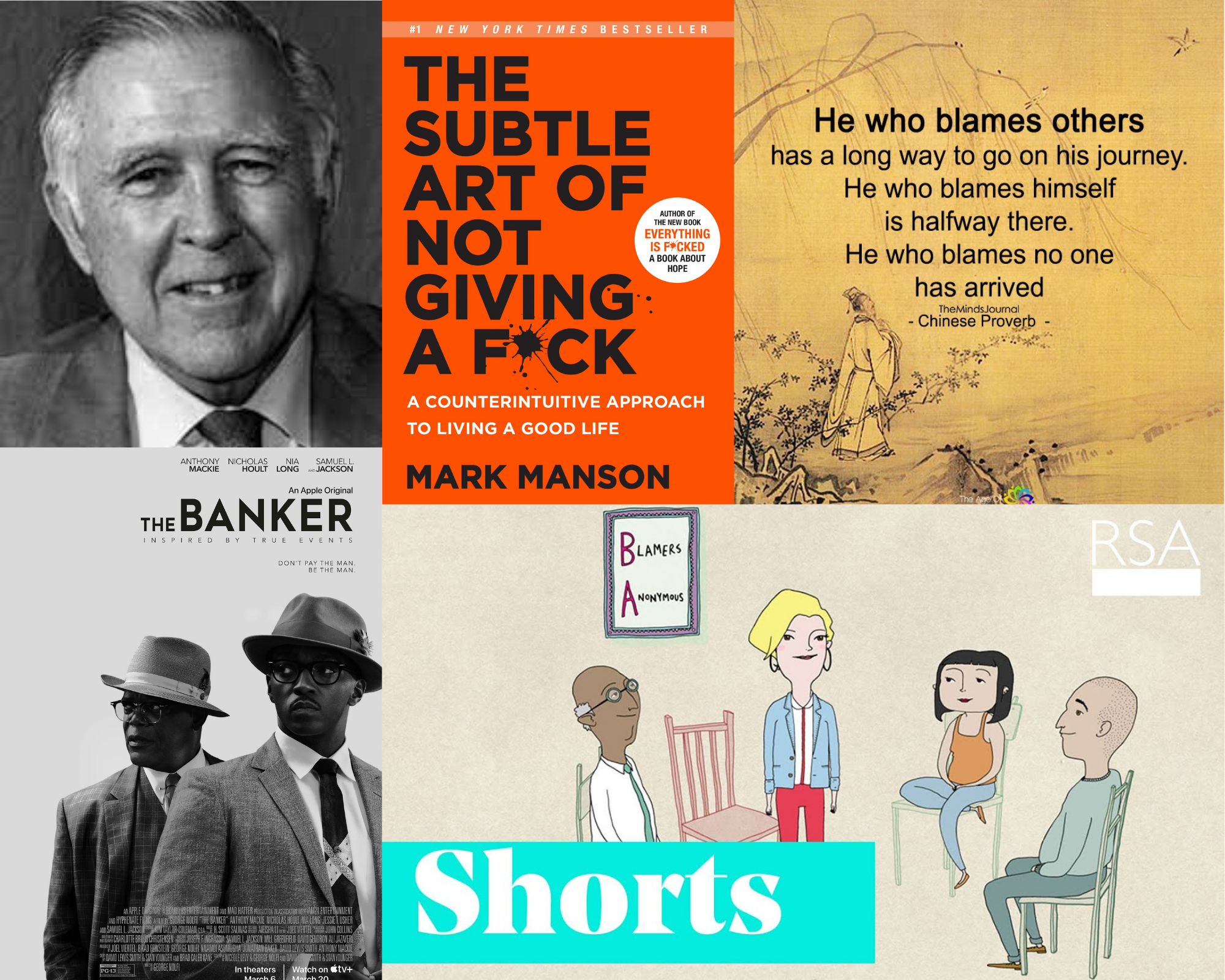Sunday Supplement #95 (March 5th, 2023)
Below is another Sunday Supplement with a quote worth sharing, a book worth reading, a movie worth watching, brainfood worth consuming, and a spiritual passage worth pondering.
Please take something away from these recommendations that enriches your week ahead!
Quote of the Week:
“Happiness is when what you think, what you say, and what you do are in harmony.”
– Mahatma Gandhi
Book of the Week:
The Curious Incident of the Dog in the Night-Time – Mark Haddon
The Curious Incident of the Dog in the Night-Time is narrated in the first-person from the perspective of Christopher John Francis Boone, a 15-year-old boy who investigates the death of a neighbor’s dog.
Christopher is described as a mathematician with some behavioral difficulties. The book refers to Asperger syndrome, which is an autism spectrum disorder today.
Haddon’s novel is a thought-provoking exploration of being observed as an outsider and seeing the world differently.
Christopher’s journey in the novel goes beyond the mystery of the neighbor’s dog and has a powerful story worthy of its praise and awards.
The novel is considered Haddon’s first novel published for adults. It also has an edition meant for children.
Movie of the Week:
A young man, recently released from prison, is challenged by a wealthy quadriplegic man to become his caregiver.
This French film has a simple premise, but the characters bring out the best of this wonderful and heartfelt story.
François Cluzet and Omar Sy star as the wealthy aristocrat and the young man, but the supporting cast of Anne Le Ny, Audrey Fleurot, and Grégoire Oestermann make the most of every scene they are in.
There is an American remake with Kevin Hart and Bryan Cranston. I haven’t seen it, but when a foreign film is remade for America, I think it signals that the original is worth seeing.
Brainfood of the Week:
The Less You Seek, The More You’ll Find | The Happiness Paradox | Einzelgänger
Einzelgänger’s video starts with an example of how trying to reject negative mental spaces often makes things worse.
If you try to chase happiness directly, you often find it escapes your grasp. Conversely, if you stop searching, you might find it more easily.
Einzelgänger explores The Happiness Paradox in depth in his 12-minute video. He goes over philosophers’ perspectives as well as recent scientific studies.
The video goes over how The Happiness Paradox works, gives examples of research into the paradox, and provides alternative strategies for living with meaning.
I’ve featured Einzelgänger’s channel in previous Sunday Supplements. If you enjoy the content, check out the other videos I’ve posted or his channel on YouTube.
Closing Spiritual Passage:
“A person without a smiling face must not open a shop.”
– Chinese Proverb
This Chinese Proverb has a surface-level interpretation and one that prompts me to think much deeper about my engagement with others.
On the surface, the proverb explains how a business will likely perform poorly if the person behind the counter doesn’t have a smile.
Customers might not want to engage with a standoffish or frowning business owner. However, the deeper thought behind the proverb makes me think about how my demeanor affects my engagement with others.
I don’t think you should pretend to be happy all the time, but I think being closed off can prevent or discourage others from reaching out.
Try to welcome others in your life with a smile, and have a blessed week ahead!

